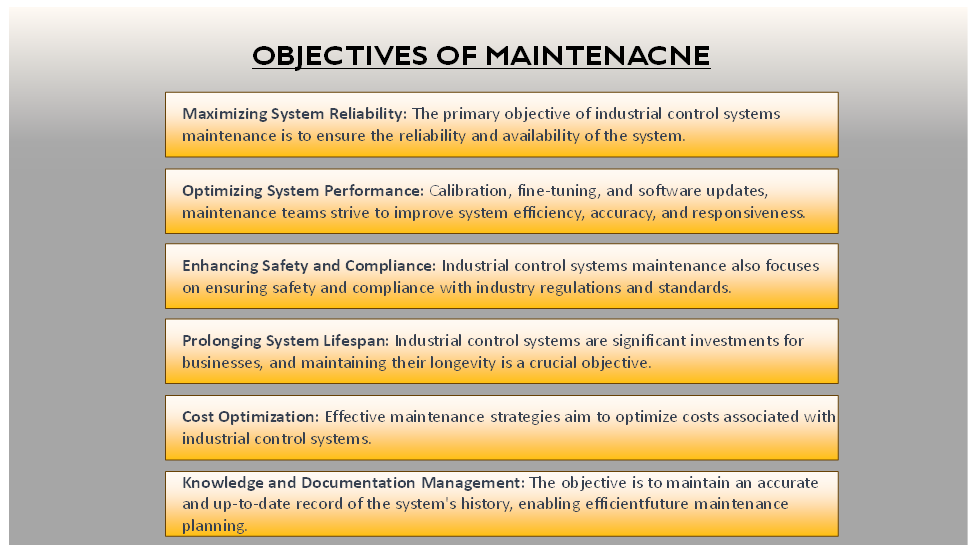Introduction
Industrial Control systems maintenance is a vital aspect of ensuring the smooth and efficient operation of automation systems. Whether it’s manufacturing processes, industrial control systems, or building automation, regular maintenance plays a crucial role in maximizing performance and minimizing disruptions. By proactively addressing potential issues and fine-tuning system parameters, businesses can optimize their automation systems for peak productivity. In this comprehensive guide, we will delve into the significance of control systems maintenance, exploring its benefits and providing practical insights to help businesses maintain their automation systems with confidence. Let’s embark on this journey to unlock the full potential of control systems maintenance and empower your business for long-term success.
The Importance of Control Systems Maintenance
Control systems maintenance involves proactive upkeep, inspection, and troubleshooting to ensure the optimal performance of automation systems. By implementing regular maintenance practices, businesses can minimize the risk of system failures and malfunctions, ensuring continuous and reliable operation. Regular maintenance activities such as calibration, fine-tuning, and software updates are essential for optimizing the performance of control systems. These activities enhance productivity, efficiency, and overall operational effectiveness. By detecting and addressing potential faults or deteriorations in the system through routine inspections and diagnostics, maintenance technicians can prevent major breakdowns and minimize costly downtime. In addition to system reliability and performance optimization, control systems maintenance plays a crucial role in ensuring safety compliance. Regular inspections and adherence to safety standards and regulatory requirements help mitigate risks to personnel and operations.

Key Components of Control Systems Maintenance
Partnering with a Reliable Control Systems Maintenance Provider
To ensure effective control systems maintenance, businesses can greatly benefit from collaborating with a reliable and experienced maintenance provider. Parijat Controlware Inc. specialize in offering comprehensive solutions for maintaining automation systems. With their wealth of knowledge and expertise, their skilled technicians possess the necessary tools and proficiency to conduct regular inspections, perform preventive maintenance, and carry out diagnostic testing.
Conclusion
Industrial control systems maintenance is essential for ensuring the optimal performance, reliability, and safety compliance of automation systems. Regular maintenance practices, including preventive maintenance and diagnostic testing, help prevent system failures, optimize performance, and detect potential issues before they escalate. By partnering with a trusted control systems maintenance provider, businesses can proactively maintain their automation systems and ensure their longevity, enabling them to operate efficiently and effectively in a competitive landscape.



